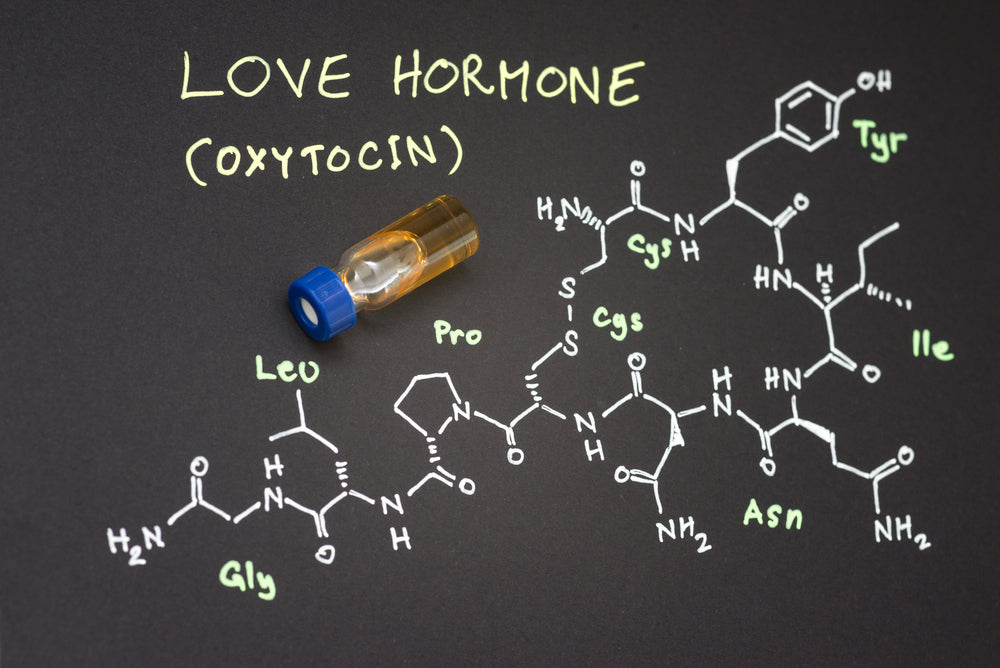Oxytocin: The Peptide for Bonding, Mood, and Stress Relief
What is Oxytocin?
Oxytocin is a synthetic analog of the naturally occurring hormone and neuropeptide oxytocin, sometimes referred to as the “love hormone” or “bonding hormone.” Oxytocin plays a critical role in social bonding, maternal behaviors, sexual reproduction, and emotional well-being. The synthetic form, Oxytocin, is designed to mimic and enhance these effects, offering potential therapeutic applications in functional and mental health care.
How Does Oxytocin Work? (Mechanism of Action)
Oxytocin acts on various physiological and neurological pathways:
-
Oxytocin Receptor Activation: Binds to oxytocin receptors (OXTR) located throughout the brain and body, modulating emotional and social behaviors.
-
Neurotransmitter Regulation: Influences serotonin and dopamine pathways, contributing to feelings of pleasure, trust, and stress reduction.
-
Stress and Anxiety Reduction: Lowers cortisol levels and reduces the physiological effects of stress.
-
Cardiovascular and Anti-Inflammatory Effects: Emerging research suggests Oxytocin may benefit heart health and reduce inflammation.
Potential Health Benefits of Oxytocin Peptide Therapy
Early research and clinical use suggest a range of therapeutic benefits:
-
Social Bonding and Trust Enhancement: Improves interpersonal relationships and social connection.
-
Anxiety and Stress Relief: Reduces symptoms of anxiety and promotes calmness.
-
Mood Stabilization: May help manage mood disorders and emotional dysregulation.
-
Support for Autism Spectrum Disorder (ASD): Investigated for improving social functioning in individuals with ASD.
-
Potential Support for Weight Management: Early studies suggest oxytocin may help regulate appetite and satiety.
Is Oxytocin Safe? (Safety and Regulatory Considerations)
Oxytocin and its analogs have been generally well-tolerated in clinical studies. Side effects may include mild nasal irritation (when administered intranasally), headache, or nausea. Oxytocin is not FDA-approved for widespread therapeutic use and remains investigational. It is not prohibited by WADA, but use should be under professional medical supervision.
Should You Consider Oxytocin? (Conclusion)
Oxytocin holds promise as a therapeutic option for promoting emotional wellness, reducing stress, and enhancing social connection. While more human clinical trials are needed, early studies and clinical experiences are encouraging.
If you are interested in Oxytocin or other peptide therapies to support mood, emotional well-being, or social connection, we encourage you to schedule an appointment or consultation with Revolution Health & Wellness Clinic. Our knowledgeable team can help create a customized, evidence-based treatment plan tailored to your goals.
References
-
MacDonald, K., & MacDonald, T. M. (2010). The peptide that binds: Oxytocin's role in social bonding and trust. Current Directions in Psychological Science, 19(5), 259-263. https://journals.sagepub.com/doi/10.1177/0963721410383244
-
Meyer-Lindenberg, A., et al. (2011). Oxytocin and human social behavior. Nature Reviews Neuroscience, 12(9), 524-535. https://www.nature.com/articles/nrn3044
-
Feifel, D., et al. (2010). Oxytocin modulates neural circuitry of social cognition in humans. Journal of Neuroscience, 30(14), 4999-5007. https://www.jneurosci.org/content/30/14/4999
-
Wikipedia. (2024). Oxytocin. https://en.wikipedia.org/wiki/Oxytocin


